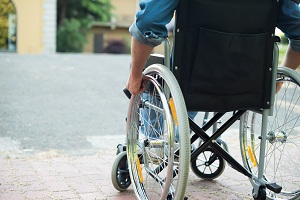Diagnosis of life-threatening diseases such as cancer may become a matter of minutes as scientists have developed a new bio-sensor technology, which they claim provides results within 15 minutes. “The technology uses antibodies to detect biomarkers – molecules in the human body which are often a marker for disease – much faster than current testing methods,” said co-researcher Paul Millner from the Faculty of Biological Sciences at the University of Leeds. The researchers are hopeful that the technology could be developed into a small device similar to a mobile phone into which different sensor chips could be inserted, depending on the disease being tested for. “We’ve designed a simple instrumentation,” Millner said, “which will make the bio-sensors easy to use and understand. They’ll work in a format similar to the glucose bio-sensor testing kits that diabetics currently use.” Currently, blood and urine samples are tested for disease markers using a three-decade-old method called ELISA (Enzyme Linked Immunosorbant Assay). The method, considered costly, takes more than two hours to complete and requires technical expertise. “The new technology could be used in doctors’ surgeries for more accurate referral to consultants and in hospitals for rapid diagnosis,” he said. Tests have shown that the bio-sensors can detect a wide range of diseases, including prostate and ovarian cancer, stroke, multiple sclerosis, heart disease and fungal infections. It also hold prospects for testing tuberculosis and HIV, the researcher claimed. The technology was developed through a European collaboration of researchers and commercial partners in a project called ELISHA.

Be a part of Elets Collaborative Initiatives. Join Us for Upcoming Events and explore business opportunities. Like us on Facebook , connect with us on LinkedIn and follow us on Twitter , Instagram.












